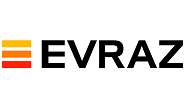Canada

February 28, 2022
Evraz NA Sees No Impact on U.S., Canadian Operations from Sanctions
Written by Michael Cowden
Evraz North America has seen no impact on its U.S. and Canadian operations or on its finances from sanctions rolled out following Russia’s invasion of Ukraine.
Nor does the Chicago-based steelmaker expect any disruption as a result of the New York Stock Exchange (NYSE) and Nasdaq halting trading of U.S.-listed Russian companies, an Ervaz NA spokeswoman told SMU on Monday.
![]() The reason: The bulk of Evraz’s operations might be in Russia. But Evraz North America is a wholly owned subsidiary of Evraz Plc, a public company incorporated under UK laws and traded on the London Stock Exchange, she said.
The reason: The bulk of Evraz’s operations might be in Russia. But Evraz North America is a wholly owned subsidiary of Evraz Plc, a public company incorporated under UK laws and traded on the London Stock Exchange, she said.
“Nothing is changing. We don’t expect it to change – and if there are any restrictions on the parent company, we don’t expect that to impact North America,” the spokeswoman said.
Evraz North America operates independently in the United States and Canada “in all areas” including raw materials procurement, operating production facilities and corporate financing, the spokeswoman said.
“All of our financing is in North America,” she said. “We are not tied to them (Russia). … We’re off operating on our own.”
Case in point: Evraz NA’s plate mill in Portland, Ore., relies on slabs melted at the company’s steel mill in Regina, Saskatchewan. And what is not imported from Canada comes in from either Brazil or Mexico. “We don’t get any slabs from Russia,” the spokeswoman said.
Also unchanged are plans to add a solar-powered rail facility to Evraz NA’s steel mill in Pueblo, Colo. The rail mill is expected to begin operations in 2023. “Any delays at the rail mill would be just normal construction-related ones,” she said.
Evraz’s North American steel operations consist primarily of a plate mill in Portland, a long products mill in Pueblo, and oil country tubular goods (OCTG) and line pipe mills in western Canada. The company also has 18 scrap operations throughout Canada and the United States.
Russian banks and political elites have been targeted with sanctions. Evraz CEO Aleksey Ivanov said last week on a quarterly earnings call that it was too early to say what the impact of such sanctions might be for the company as a whole.
Flat-rolled steelmaker NLMK USA – a subsidiary of Russia’s Novolipetsk Steel – declined to comment for this article.
NLMK USA operates an EAF steel mill in Portage, Ind., a hot strip mill and cold reduction mill in Farrell, Pa., and a coating facility in Sharon, Pa.
By Michael Cowden, Michael@SteelMarketUpdate.com






